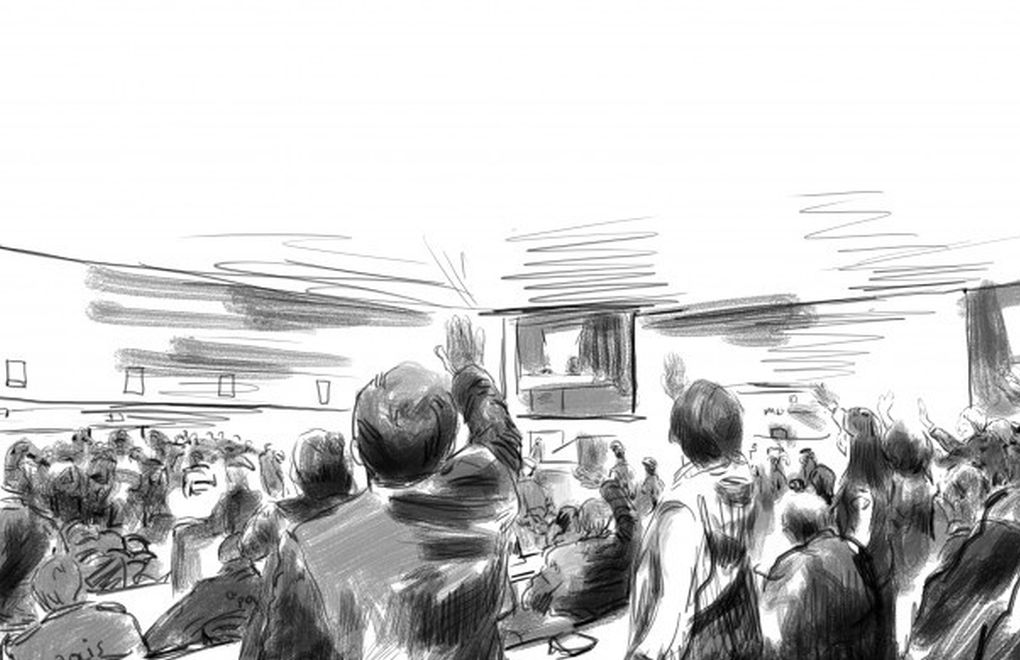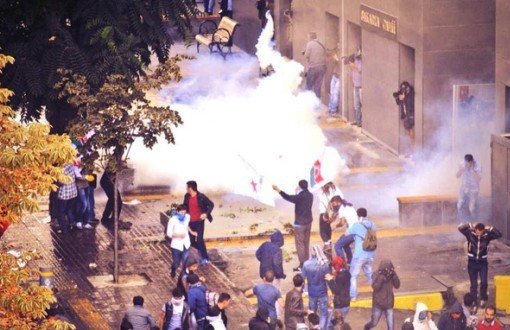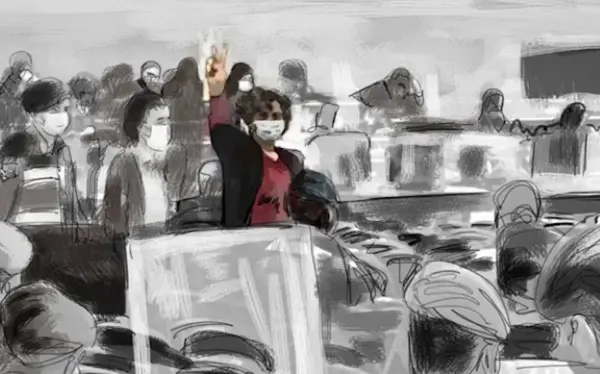Click to read the article in Turkish (1) (2)
The 1st session of the 30th hearing period of the Kobani trial is being held at the Ankara 22nd High Criminal Court on the Sincan Prison Campus. In this session, politician Mesut Bağcık, who is standing trial without detention, presented his defense yesterday and today.
108 people including politicians belonging to the pro-Kurdish People's Democratic Party (HDP) and Democratic Regions Party (DBP) including the former HDP Co-Chairpersons Selahattin Demirtaş and Figen Yüksekdağ, former DBP Co-Chairperson Sabahat Tuncel and others are standing trial in the Kobani case.
Criticizing the prosecution's handling of the case, Bağcık told the court that the anonymous witnesses have provided false statements, and he denied the allegations.
Bağcık stated that he was in prison between 2017 and 2018, and pointed out that the anonymous witness claimed that he has gone to "Qandil" during those dates. He emphasized that a situation like the one described in the statement could not have occurred while he was in prison.
"The indictment doesn't mention ISIS at all. Everyone knows the kind of massacres and genocidal acts committed by that murderous gang. They carried out numerous massacres within the borders of this country as well. Hundreds of people were killed. Millions of people were displaced as a result of the ISIS actions. This was a conscious policy," Bağcık told the court.
"ISIS might seem sympathetic to some people. The prosecutor hasn't uttered a single word about this genocidal gang. When it comes to Kurdish politicians, the scales seem to tip differently. The opinion prepared by the prosecutor is not based on legality. Therefore, the opinion, just like the indictment, is political. The reason that I am here is that I am a Kurdish politician," he added.
Bağcık also argued that the court should have taken the testimonies of the detained individuals first, rather than those who are not in custody.
"If they had been heard, perhaps they might have been released. However, the court did not choose this path. You also know that freedom is more important than anything else. Therefore, they should be released at once," Bağcık said.
The politician gave examples how the witness statements were false and fabricated.
"How is it possible that two different people, five months apart, can give the exact same statement about two different individuals? I expect these testimonies to be removed from the case file. Anonymous witness Atlas has provided identical statements word for word about at least 10 people. These are audacious lies under the guise of an anonymous witness. It has become evident that these statements were not given by these individuals. There are fabricated statements. There is no crime, there is a fabrication of charges," Bağcık told the court.
What happened in the Kobani protests?
The 2014 Kobanî protests are large-scale rallies by pro-People's Defense Units (YPG) protestors in Turkey in the autumn 2014, in reaction to the siege of Kobanî launched by the ISIS. Large demonstrations unfolded in Turkey, and quickly descended into violence between protesters and the Turkish police. Before the protests, those who were waiting in the district of Suruç, Urfa in southeastern Turkey and wanted to cross the border to enter Kobani were intervened with pepper gas and rubber bullets. In the meantime, some pictures allegedly showing ISIS militia crossing the border of Turkey were published. The Suruç district of Urfa in Turkey and Kobani town in Syria are two Kurdish majority settlements on two sides of the border that are at a distance of 15 kilometers from one another. President and Chairperson of ruling Justice and Development Party (AKP) Recep Tayyip Erdoğan made statements indicating that they equated PKK with ISIS and one saying "Kobani is just about to fall". While the wounded coming from Kobani were kept waiting on the border, the wounded from ISIS were treated at hospitals. Several news reports in the press were published, reporting that "Kobani fell," refuted each time. After the People's Democratic Party (HDP) made a call to take to the streets against a possible ISIS massacre in Kobani, thousands of people protested in Kurdish-majority provinces as well as Ankara and İstanbul. While left parties also supported these protests, deaths occurred with the onset of police violence. Street conflicts ensued and 12 people were killed initially. A total of 42 people lost their lives from October 6 to 12, 2014. According to a report by the Human Rights Association (İHD), 46 people died, 682 people were wounded and 323 people were arrested in the protests held between October 6 and 8, 2014. As reported by the Anadolu Agency, 31 people lost their lives, 221 citizens and 139 police officers were wounded. |
(AS/PE)






